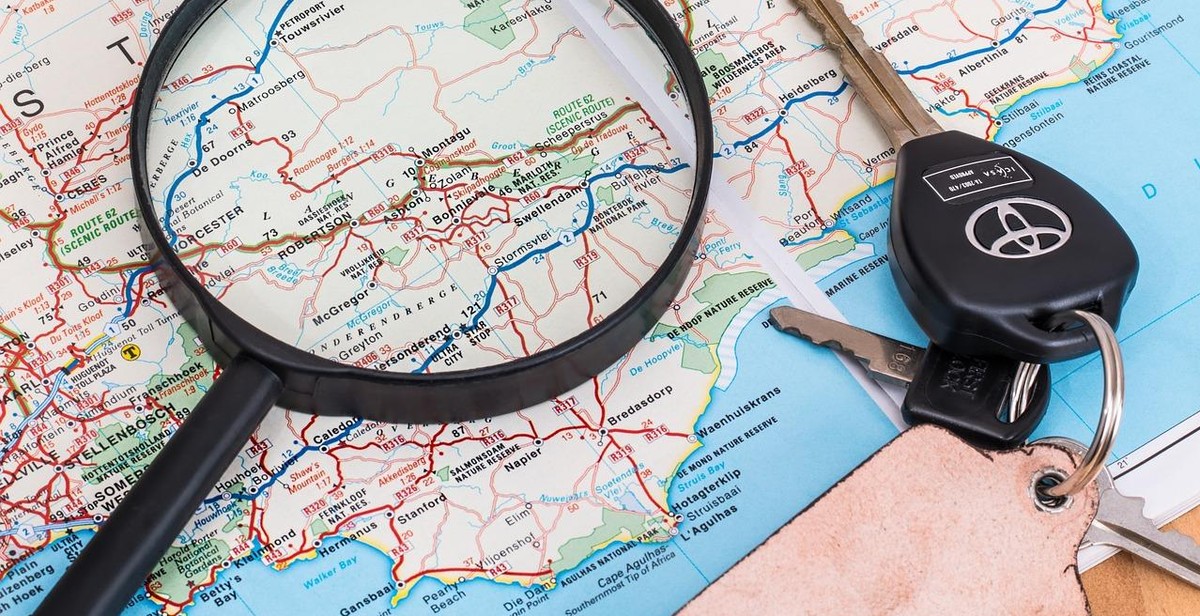How to Plan a Road Trip: Tips for a Memorable Adventure
As an avid traveler and content creator, I have had my fair share of road trips over the years. Whether it’s a solo adventure or a group trip with friends and family, there’s something special about hitting the open road and exploring new destinations at your own pace.
However, planning a road trip can be overwhelming, especially if it’s your first time. From choosing the right vehicle to mapping out your route and packing essentials, there are many factors to consider to ensure a smooth and enjoyable journey.
In this article, I will share some of my top tips for planning a road trip that will leave you with unforgettable memories. From budgeting to safety measures, I’ll cover all the important aspects of road trip planning to help you prepare for your next adventure.
Why Plan a Road Trip?
Road trips offer a unique opportunity to explore new destinations, experience different cultures, and create lasting memories with loved ones. Unlike other forms of travel, road trips allow you to set your own pace and itinerary, giving you the freedom to discover hidden gems and off-the-beaten-path attractions.
By planning your road trip ahead of time, you can also save money, avoid unexpected expenses, and ensure a stress-free journey. With proper preparation and a bit of flexibility, you can make your road trip a truly unforgettable adventure.
Choosing Your Destination
One of the most exciting aspects of planning a road trip is choosing your destination. Whether you’re looking to explore the great outdoors, indulge in local cuisine, or immerse yourself in a new culture, there’s a destination out there that’s perfect for you. Here are some tips to help you choose the right destination for your road trip:
Consider Your Interests
When choosing your destination, it’s important to consider your interests. Do you love hiking and camping? Are you a foodie who wants to sample local cuisine? Are you a history buff who wants to visit museums and historic sites? By considering your interests, you can narrow down your options and choose a destination that’s perfect for you.
Research Your Destination
Once you’ve identified your interests, it’s time to research potential destinations. Look for places that offer the activities and experiences you’re interested in. Check out travel guides, websites, and blogs to get a sense of what each destination has to offer. Don’t forget to consider practical factors like distance, weather, and accessibility.
Make a list of potential destinations and rank them based on your interests and research. This will help you choose the perfect destination for your road trip.
- Consider your interests when choosing your destination
- Research potential destinations to find one that offers the activities and experiences you’re interested in
- Rank potential destinations based on your interests and research to choose the perfect destination for your road trip
| Pros | Cons |
|---|---|
| Choosing a destination based on your interests ensures that you’ll have a memorable and enjoyable road trip | You may need to compromise on some destinations if they don’t offer everything you’re looking for |
| Researching potential destinations helps you make an informed decision and avoid disappointment | Research can be time-consuming and overwhelming |

Planning Your Route
One of the most important aspects of planning a road trip is deciding on your route. This will determine the overall direction of your trip and the places you will visit along the way. Here are some tips to help you plan your route:
Decide on Your Route
Start by deciding on the overall direction of your trip. Will you be traveling north to south, east to west, or in a circular route? Consider the places you want to visit and the sights you want to see, and then map out a route that will take you there.
Use online mapping tools such as Google Maps or MapQuest to help you plan your route. These tools can help you estimate driving times and distances, and can also provide information on traffic conditions and road closures.
Determine Your Stops
Once you have your route planned out, it’s time to determine your stops. Consider the sights you want to see, the activities you want to do, and the places you want to stay along the way. Make a list of potential stops and then research each one to determine if it’s worth adding to your itinerary.
Use travel blogs, online forums, and travel guides to help you research each stop. Look for reviews from other travelers and use this information to help you decide which stops to include in your trip.
Calculate Your Driving Time
Finally, calculate your driving time between each stop. This will help you determine how long you will need to spend on the road each day and how many days you will need to complete your trip.
Use an online travel calculator to help you estimate your driving time. This will take into account factors such as traffic, road conditions, and speed limits.
| Tip: | Be flexible with your route and stops. Unexpected events can occur during a road trip, so be prepared to make adjustments to your itinerary if needed. |
|---|
Preparing Your Vehicle
Before hitting the road, it is important to ensure that your car is in good working condition. You do not want to get stranded in the middle of nowhere with a broken-down car. Here are some tips to help you prepare your vehicle for a road trip:
Check Your Car’s Maintenance
Before you leave, check your car’s maintenance records to make sure that it is up to date with its oil change, tire rotation, and other routine maintenance. If you are due for a service, take your car to a trusted mechanic to have it checked and serviced. This will prevent any unexpected breakdowns on the road.
Pack the Essentials
It is important to pack the essentials for your car to ensure a safe and comfortable journey. Here is a list of items you should pack:
- First aid kit
- Spare tire and jack
- Tire pressure gauge
- Flashlight and extra batteries
- Jumper cables
- Emergency blanket and warm clothes
- Water and snacks
- Map and GPS
Conclusion
Preparing your vehicle for a road trip is critical to ensuring a safe and enjoyable journey. By checking your car’s maintenance and packing the essentials, you can avoid any unexpected breakdowns and have peace of mind while on the road.
Finding Accommodations
One of the most important aspects of planning a road trip is finding the right accommodations. Here are some tips to help you find the perfect place to stay:
Book Your Lodging Ahead of Time
It’s important to book your lodging ahead of time, especially if you’re traveling during peak season. This will help you avoid the stress of not being able to find a place to stay and ensure that you get the best possible rate. Many hotels and motels offer discounts for early bookings, so be sure to take advantage of these deals.
Consider Alternative Accommodations
If you’re looking for a more unique experience, consider alternative accommodations such as camping sites, hostels, or vacation rentals. Camping sites are a great option if you want to be closer to nature and save money on lodging. Hostels are a good choice if you’re traveling solo or with a group and want to meet new people. Vacation rentals offer the comforts of home and are perfect for families or larger groups.
| Accommodation Type | Pros | Cons |
|---|---|---|
| Hotels/Motels | Convenient, easy to book, usually have amenities such as pools and fitness centers | Can be expensive, lack of privacy |
| Camping Sites | Closer to nature, affordable, usually have amenities such as fire pits and picnic tables | Lack of amenities such as showers and toilets, requires camping gear |
| Hostels | Affordable, social atmosphere, usually have communal spaces such as kitchens and lounges | Lack of privacy, shared bathrooms and sleeping areas |
| Vacation Rentals | Comforts of home, good for families or larger groups, usually have fully equipped kitchens and laundry facilities | Can be expensive, lack of daily housekeeping services |
By considering these tips, you can find the perfect accommodations for your road trip adventure. Don’t forget to book early and explore alternative options to make the most of your trip!
Budgeting for Your Road Trip
Going on a road trip can be an exciting and memorable adventure, but it can also be expensive if not properly planned. To avoid overspending, it is important to create a realistic budget and account for all expenses.
Account for All Expenses
Before you hit the road, make a list of all the expenses you will incur during your trip. This includes gas, food, lodging, activities, and any other miscellaneous expenses. Research the cost of gas and calculate how much you will need for the entire trip. Look up the average cost of meals and lodging in the areas you will be visiting. Don’t forget to factor in the cost of any activities you plan on doing.
Create a Realistic Budget
Based on the expenses you have identified, create a realistic budget for your road trip. Be sure to allocate enough money for each expense category and leave some wiggle room for unexpected expenses. Consider cutting back on unnecessary expenses like eating out at expensive restaurants or staying in luxury hotels. Instead, opt for cheaper options like fast food or campsites.
| Expense Category | Estimated Cost |
|---|---|
| Gas | $500 |
| Food | $300 |
| Lodging | $400 |
| Activities | $200 |
| Miscellaneous | $100 |
| Total | $1,500 |
By accounting for all expenses and creating a realistic budget, you can enjoy your road trip without worrying about overspending. Remember to track your expenses along the way and adjust your budget if necessary.

Making the Most of Your Road Trip
One of the best things about a road trip is the ability to stay flexible and go with the flow. While it’s important to have a general idea of where you want to go and what you want to see, don’t be afraid to deviate from your original plan if something catches your eye.
Take Advantage of Local Offerings
One way to make the most of your road trip is to take advantage of local offerings. Whether it’s trying a regional specialty at a local restaurant or attending a festival or event, immersing yourself in the local culture can make your trip even more memorable.
- Check out local farmers markets
- Visit local landmarks and museums
- Attend local festivals and events
- Try regional specialties at local restaurants
By taking advantage of local offerings, you can get a better sense of the area you’re visiting and create lasting memories.
Stay Flexible
Remember to stay flexible throughout your road trip. Unexpected detours or changes in plans can lead to new and exciting experiences. Keep an open mind and embrace the adventure.
| Tip | Description |
|---|---|
| Download offline maps | Stay connected even if you don’t have cell service |
| Pack snacks and drinks | Save money and avoid hunger on long stretches of road |
| Take breaks often | Stretch your legs and enjoy the scenery |
With these tips in mind, you can make the most of your road trip and create memories that will last a lifetime.
